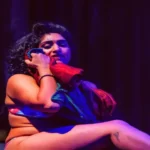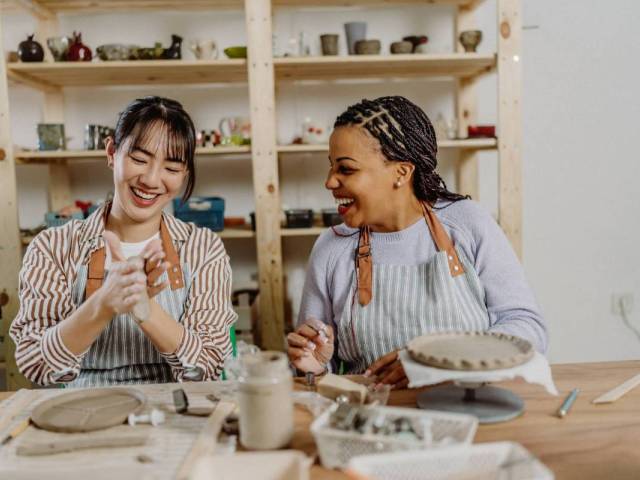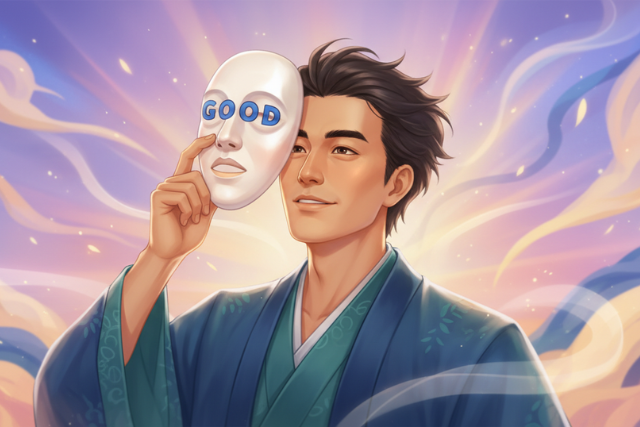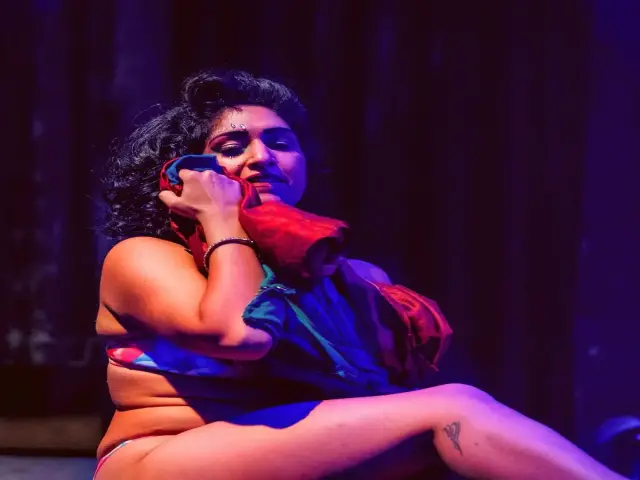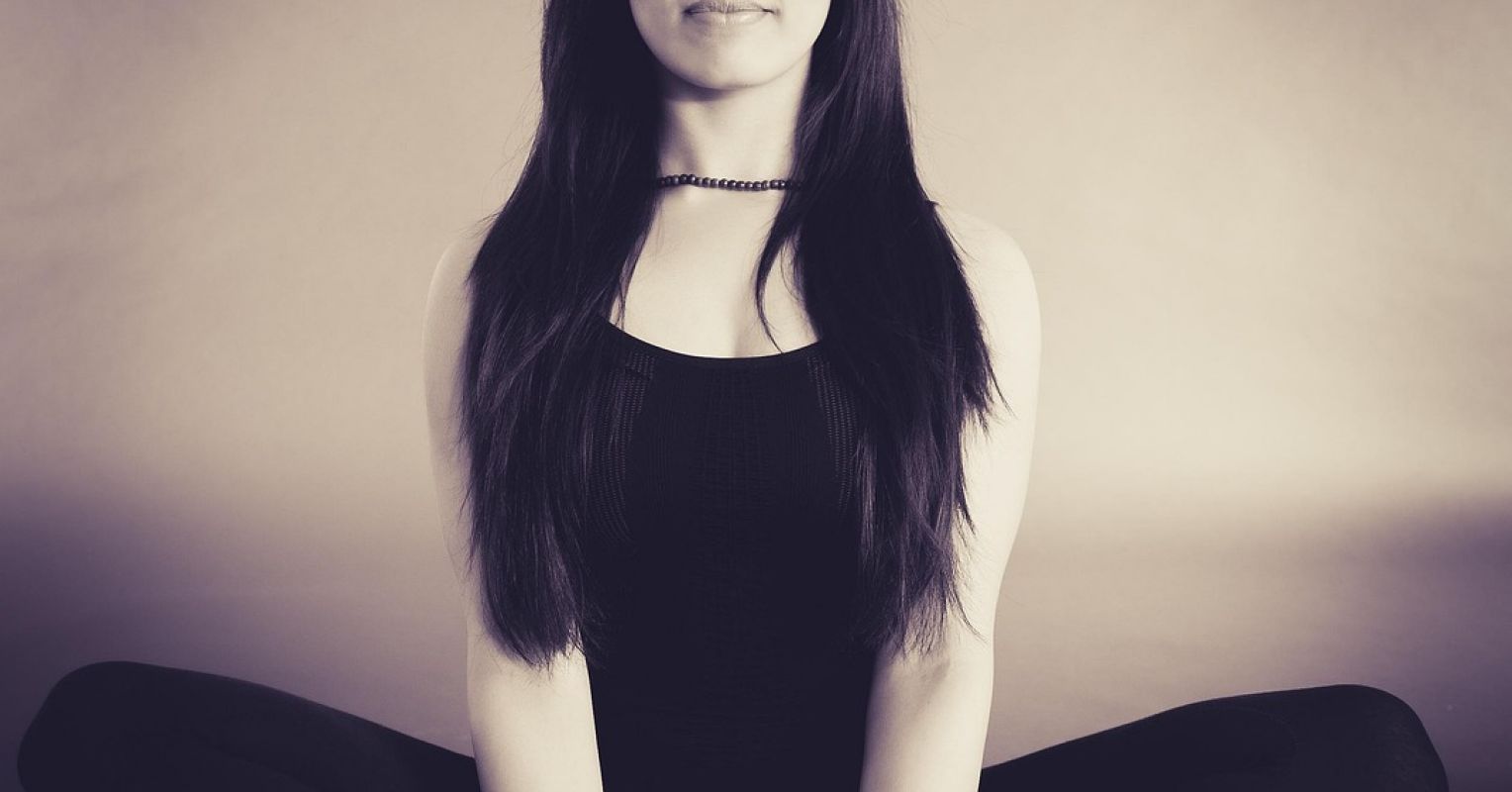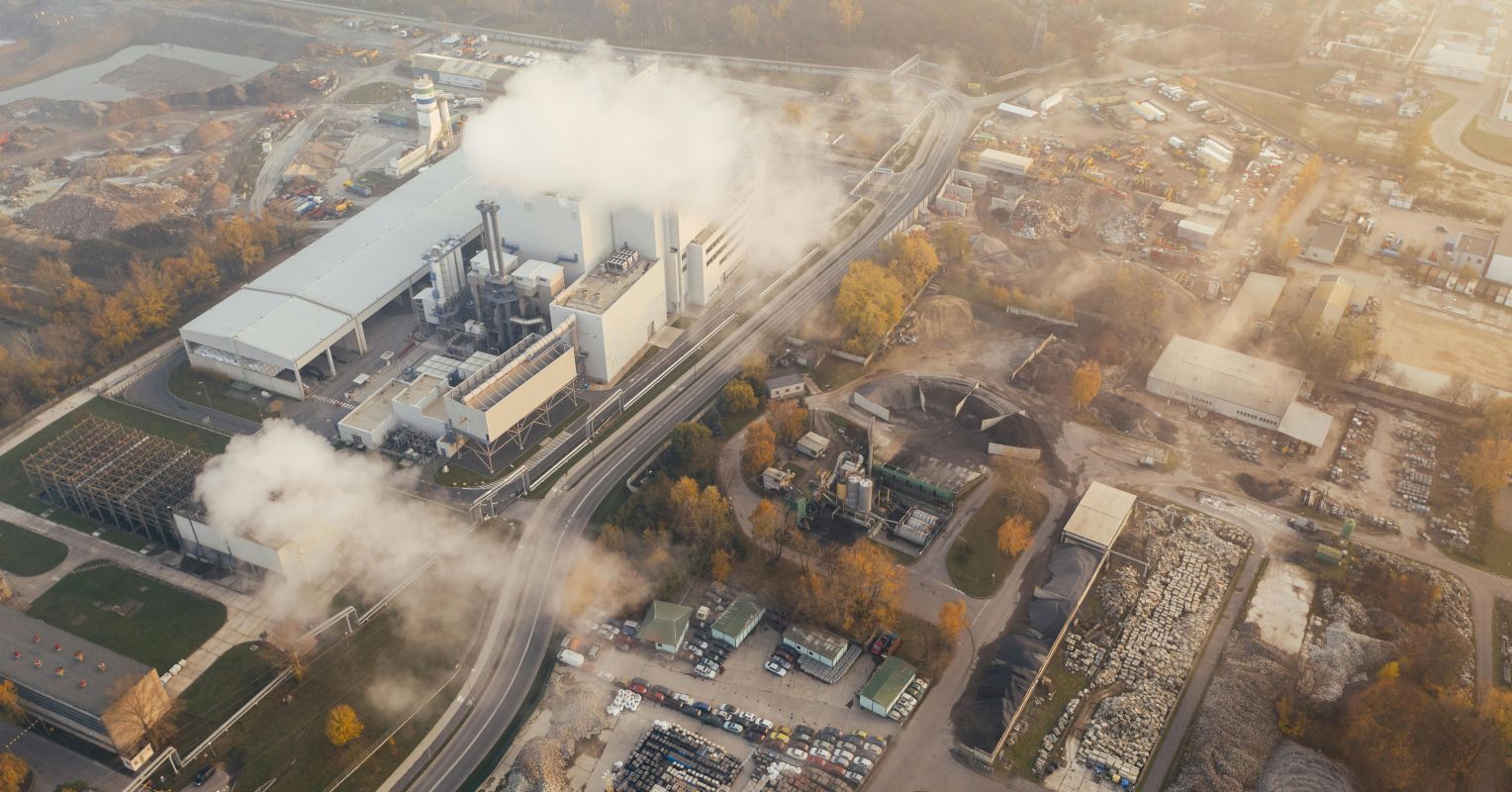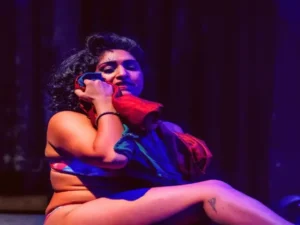Maternal well-being is an important public health issue. A 2022 report by the World Health Organization explains that one in five women experience Mental health challenges during pregnancy and one year after the birth of a baby.
There are many government policies, workplace benefits, and other supports that could help mothers during this transition—but a recent study looked at a different kind of support: the arts.
The paper combed through research across the world and found that arts programs are important to moms’ well-being. Researcher Emily-Rose Cluderay and her colleagues reviewed and synthesized the findings of 11 studies that highlight the social, emotional, and psychological benefits the arts provide expecting moms as they transition to their new parenting role. The activities ranged from singing, song writing, music, and dancing to storytelling, creative writing, and poetry, to weaving, ceramics, collages, and card-making. Here are the four benefits the researchers discovered.
1. Support
X

Feelings of isolation are a public health concern in the United States, and about two-thirds of parents struggle with loneliness. What’s more, expecting and new mothers tend to experience loneliness at even greater rates than parents of older children.
In past generations and before the rise of the nuclear family in the United States, mothers were often embedded in households with support from extended family with parenting experience who could provide guidance and practical perinatal help. While multi-generational households are growing in the United States, only 4.7% of all households (7.2% of family households) were made up of people from three or more generations in 2020.
Expecting and new mothers who take part in creative arts activities in a group setting tend to be motivated by a longing for connection with other moms. Participating in artistic activities together tends to help expecting and new mothers open up to one another and build a sense of cohesion, particularly when they’re able to meet regularly to share their experiences and nurture a sense of community and belonging.
“It brought everyone together…the music thing brought everyone closer,” explained one mother experiencing postnatal depression and participating in a group music class.
2. “Me” time
The pressures of modern life, a range of daily responsibilities, and a never-ending to-do list can increase strain on expecting and new moms. Participating in an artistic activity can offer a dedicated space to be immersed in creativity that goes beyond their day-to-day schedule of tasks.
The arts also provide opportunities to feel connected with the self, which can help expecting moms explore their changing identity as they transition into parenthood. Arts can be a way for moms to express either visually, musically, or in words how they experience being pregnant or embarking on a new role as a mother. They can also help new and expecting moms to make meaning of social and cultural perinatal expectations about who they are and who they are becoming.
After the baby is born, a little “me” time doing art can also help moms gain a sense of balance to tend to their own needs. “Everything is for the baby,” said another mother experiencing postnatal depression and participating in a group singing class. “You go to a class and it’s always for the baby. Then you go out and meet for coffee with your friends and you talk about your babies. This [singing] is also good for the baby, but at the same time it’s something for us, as well.”
3. Joy and calm
Participating in the arts can be a fun and uplifting activity for new and expecting moms. Researchers found that expecting moms who participated in a creative arts group program at their community library were uplifted by the experience. Dancing in a group, for example, permits playfulness, laughter, and celebration with others. What’s more, these positive emotions can spill over beyond art activities into relationships in the home. “I came home, you know, feeling happy,” said one expecting mother participating in a group arts activity. “If the mother of the house is feeling good, then everyone else feels good.”
The arts can also offer a reprieve from worries during motherhood. The immersive experience of creating art helps moms to “just be” in the present moment, set aside fears of the future, and “switch off” to find peace and calm. For some expecting or new moms, the arts can also help them tap into coping resources within themselves to navigate troubles or concerns.
Artistic activities, like singing, have a particularly calming effect during pregnancy. When expectant mothers listened to lullabies, “the aesthetic beauty of the music and lyrics acted as a balm and participants spoke of feeling peaceful and relaxed as the music soothed their concerns,” explain researchers.
4. Skill-building and bonding
Expecting and new mothers who participate in art programs can also learn skills that help them in their parenting. For example, singing not only provides moms with a creative outlet, it also can come in handy as a means for a mom to soothe her crying baby. Having a wide range of tools to help a baby in distress can help a mom feel empowered to fulfill her child’s needs.
Successful experiences in an arts program can inspire expecting and new moms to join other types of parenting programs, too. “I’ve been able to go to lots of other groups,” explained one mom. “I don’t think I would have gone to any of that if [the creative arts program] hadn’t given me that push.” Gaining new skills in artistic pursuits can help boost new and expecting moms’ general sense of competence that can support them during their transition to parenthood.
Creating art, like a weaving project, for a baby before their birth can also help expecting mothers to nurture the mother-baby bond. “While I was weaving, I was thinking about the baby because the weaving was for the baby,” explained one expecting mother. What’s more, learning a song for a baby can also foster positive mother-baby interactions, particularly when a baby delights in hearing their mom’s singing voice.
There are countless other ways that art contributes to our happiness. Research finds that, in general, art in our everyday lives can nurture our well-being and prevent or alleviate symptoms of physical and mental illness.
All this evidence suggests that artistic activities and community programs can be an important part of maternal health and well-being efforts. New and expecting moms may be more receptive to the arts compared to other kinds of activities and programs, like verbal therapy, because they can be less stigmatizing.
“Combining arts-based approaches with traditional therapeutic methods may create a more holistic way of empowering mothers, that fosters Emotional resilience, and strengthens the mother-infant relationship,” explain Cluderay and her colleagues. You don’t need to consider yourself an “artsy” person to reap the benefits of doodling, singing the lyrics to your favorite songs, or watching a play or a musical from time to time—especially in the company of other moms.

